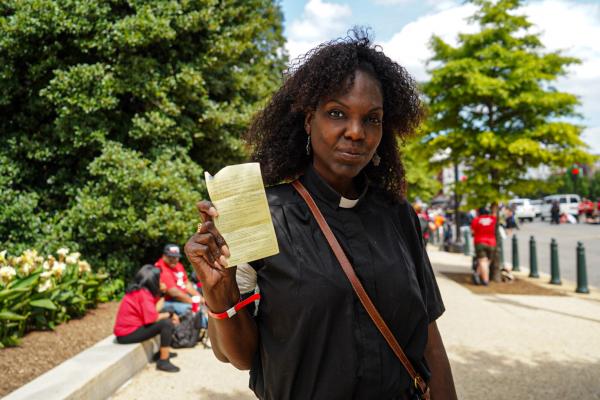Aug 3, 2021
Around 500 voting rights activists and faith leaders sat outside the Hart Senate Office Building singing hymns, protesting poverty, and calling for federal protection of voting rights on Monday. The actions were a part of the Poor People's Campaign’s National Moral Monday Action, and organizers said U.S. Capitol Police arrested around 200 people over the course of the protest.
Read the Full Article

Already a subscriber? Login
